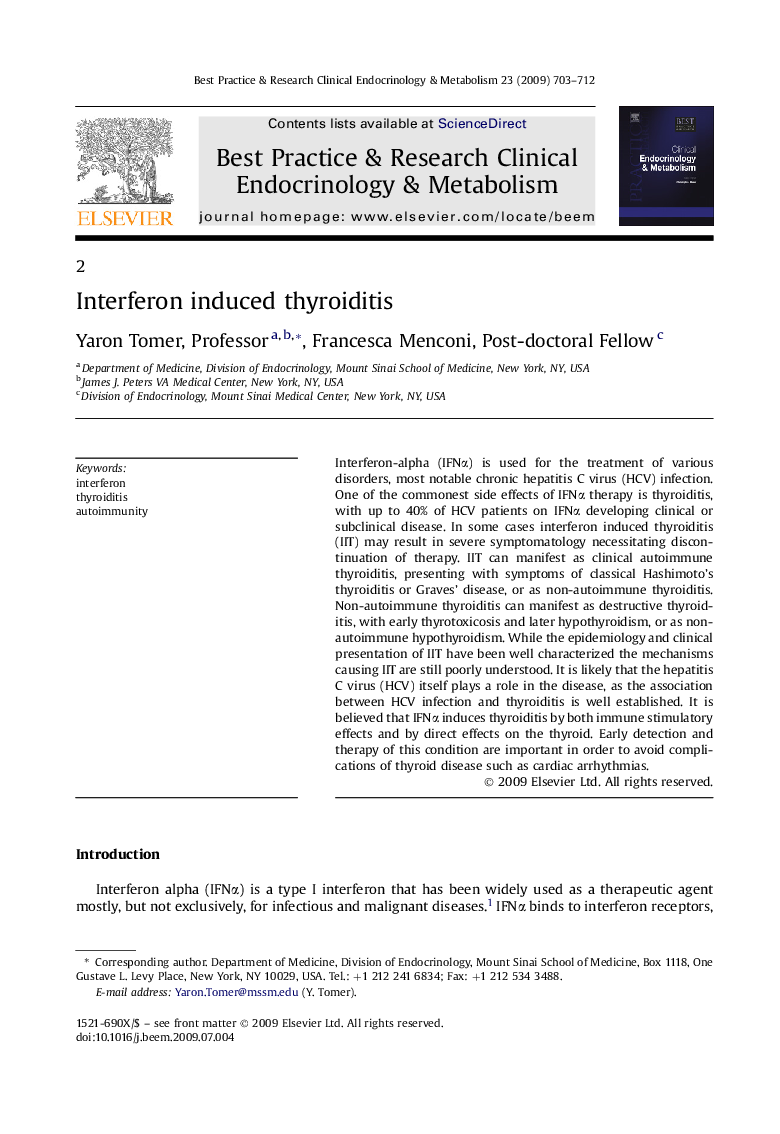| Article ID | Journal | Published Year | Pages | File Type |
|---|---|---|---|---|
| 2792147 | Best Practice & Research Clinical Endocrinology & Metabolism | 2009 | 10 Pages |
Interferon-alpha (IFNα) is used for the treatment of various disorders, most notable chronic hepatitis C virus (HCV) infection. One of the commonest side effects of IFNα therapy is thyroiditis, with up to 40% of HCV patients on IFNα developing clinical or subclinical disease. In some cases interferon induced thyroiditis (IIT) may result in severe symptomatology necessitating discontinuation of therapy. IIT can manifest as clinical autoimmune thyroiditis, presenting with symptoms of classical Hashimoto's thyroiditis or Graves' disease, or as non-autoimmune thyroiditis. Non-autoimmune thyroiditis can manifest as destructive thyroiditis, with early thyrotoxicosis and later hypothyroidism, or as non-autoimmune hypothyroidism. While the epidemiology and clinical presentation of IIT have been well characterized the mechanisms causing IIT are still poorly understood. It is likely that the hepatitis C virus (HCV) itself plays a role in the disease, as the association between HCV infection and thyroiditis is well established. It is believed that IFNα induces thyroiditis by both immune stimulatory effects and by direct effects on the thyroid. Early detection and therapy of this condition are important in order to avoid complications of thyroid disease such as cardiac arrhythmias.
